Economy
5 Moldovan products you didn’t know about that could take the country’s exports to a new level

The Republic of Moldova is a small country, so are its annual exports. In 2017, the annual Moldovan exports amounted $2.42 billion, according to the National Statistical Bureau (NBS). Of course, that is a drop in the ocean when compared to Germany, for example, that registered an amount of $1450.21 billion for the same period. However, it means a lot for a tiny country situated at the edge of Europe, with a weakened economy as a consequence of the dissolution of the Soviet Union. So, what is so special about the Moldovan exports besides the wine and the exported professional human capital? What are the Moldovan products that have the potential to increase the Moldovan exports and make Moldova sound more familiar on the global market?
First of all, it should be mentioned that Moldova is merely specialised in agri-food products. Therefore, this is one of the directions with a great potential for the Moldovan exports as long as the local producers abide by the international production standards. There were about 70 certified Eco producers in Moldova, according to the data from 2016, of which 30 are oriented to the local market and 40 to the export.
1. Honey from Moldova
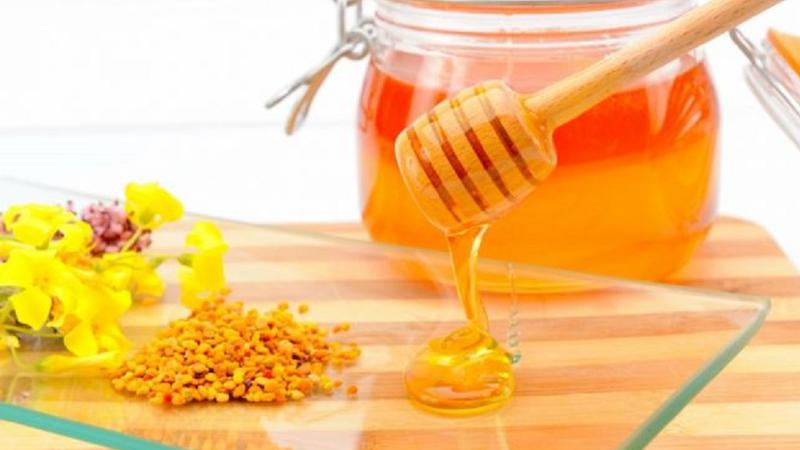
Photo source: adevarul.ro
Honey never was an export product until the signing of the Free Trade Agreement with the European Union. However, things have changes since the liberalization of trade with the EU and the US Government’s support for Moldovan beekeepers. In recent years, exports have increased from half a million dollars at the beginning, to 14 million dollars annually. Romania, Italy and France consume two thirds of Moldovan honey designated to exports.
According to Veaceslav Ioniță, an economist from the Republic of Moldova, “we are now witnessing the rebirth of a promising product for the export in the Republic of Moldova: Organic Honey,” mentioned Ioniță on his blog.
With the support of the US Farming Program, the Organic Honey of the Moldovan beekeepers will start to be certified in the summer of 2019, which means a potential of doubling the exports over the next 2-3 years.
2. Lavender oil from Moldova
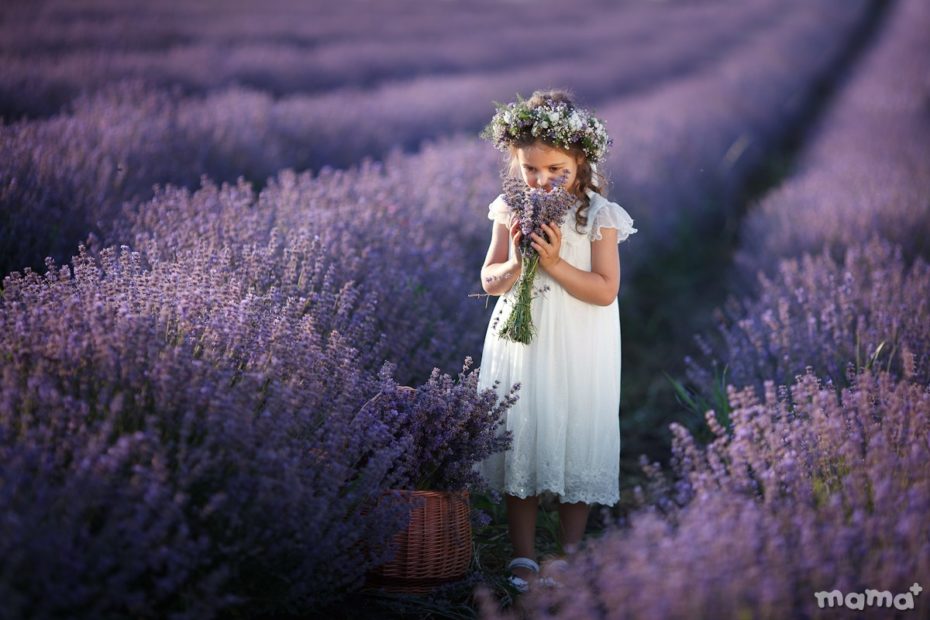
Photo source: mamaplus.md
I bet you didn’t know that the lavender essential oil manufactured in Moldova is one of the most appreciated lavender oils in the world, besides the Bulgarian, French, Chinese and South African one. The climatic conditions, fertile soil and the available manual labour force are the main factors that contribute to a successful product. For producing the organic oil, hundreds of people are involved in the care and harvesting process of the plants. All the work is done manually, as the use of automated systems reduces the quality of the oil.
According to the National Bureau of Statistics, in 2014, 569 hectares of lavender were planted in the Republic of Moldova. The farmers and entrepreneurs also cultivate sage, fennel, roses, mint, etc. France, Germany, Belgium and Luxembourg are just some of the countries where the Moldovan lavender essential oil is exported to.
3. Almonds from Moldova
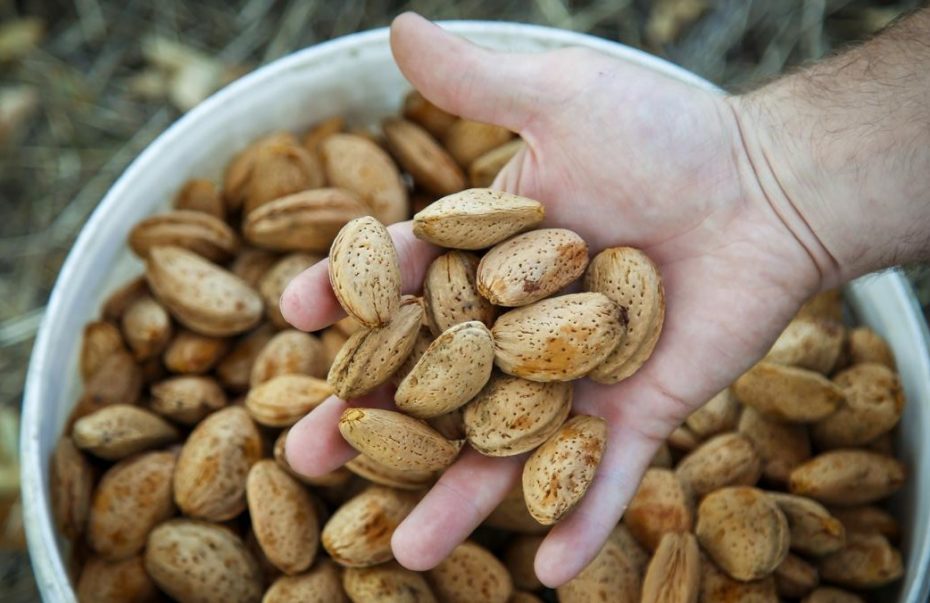
Photo source: madein.md
Almonds cultivation is not a very popular activity in the Republic of Moldova, as it originates from the Mediterranean area. However, the Moldovan farmers started to be more and more interested in producing almonds and exporting them to Europe and Asia.
The family Golban is one of those families that decided to start an activity related to almond cultivation. They planted their almond orchard in 2006. “The almonds harvested in 2014 were sold to some intermediaries who exported them. We had to accept a small price, because we did not have a warehouse where we would have kept them. This year, as we received financial help through a state grant, we managed to build a warehouse. Now that we have where to keep them, we can sell almonds at a better price,” said Tamara, a Golban family member. The family farm already obtained the Eco certification. Every year the farm produces 5-6 tones of the product that is sold internally and is exported as well. Besides the almond seeds, almond flour and oil are also produced. From the almond bark briquettes are obtained, used by the family to heat the household.
4. Berries from Moldova
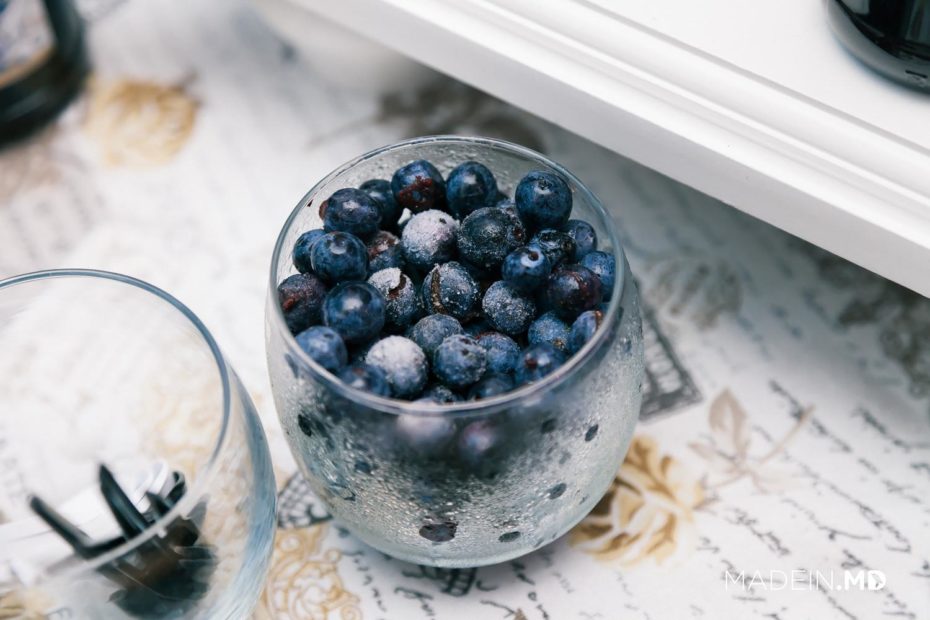
Photo source: madein.md
Blueberry, goji, strawberry, raspberry, gooseberry, currant – these berries along with other kinds are already gardened in the Republic of Moldova.
There is even a public association called “Pomuşoarele Moldovei”, which would be translated as “The Berries of Moldova”, launched in 2012 at the initiative of some producers. It aims to promote and develop the tradition of production of berries in Moldova, and to stimulate their consumption as an ecological product with beneficial effects. The Association intends to achieve these goals by promoting advanced technologies, by providing assistance in business development, public policy, marketing and cooperation. Nowadays, it encompasses 1200 farmers from Moldova that own 2700 hectares of plantations in 10 different regions.
The berries are sold fresh or frozen. Also, jams, syrups, pasta and sweets are obtained from them. “Today, more and more international projects are ready to offer their financial support and conciliation for the Moldovan berry producers,” declared Anatolie Paladi, the executive director of Advisory Center Business.
5. Cheese from Moldova
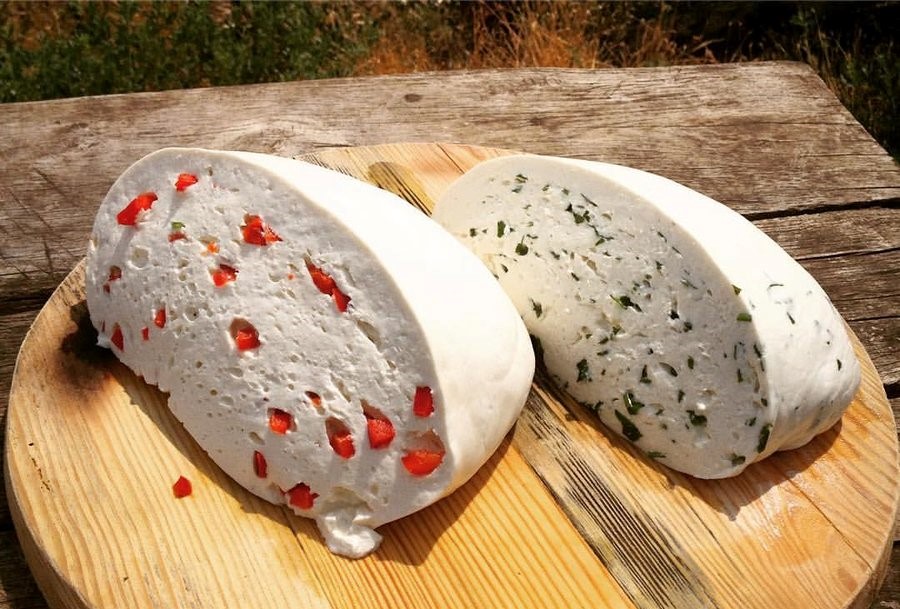
Branza de Popeasca
Photo source: moldnova.eu
Just like in the case of wine making, almost every household in Moldova produces traditional, home-made cheese. Moldovan people love cheese, called here “brânză” or “caș”. In the last year, more and more cheese producers appeared on the market. Some of them manage to export their products.
There are farmers that produce cheese after the original recipe of Gouda, Tomme, Crottin, Mozzarella, Cheddar, etc. The technologies are foreign, the ingredients are local. In such a way, a tasty, qualitative, certified and relatively cheap cheese can be obtained.
Moreover, a unique kind of cheese is produced in Moldova as well – “Brânza de Popeasca”, a product that is protected by the European Commission. It is one of the few authentic products from Moldova that were qualified as products with a protected designation of origin. Once it obtained such a labelling, it can no longer be manufactured according to the same recipe and the same name anywhere in the world. “Brânza de Popeasca” is a cheese with different additions like dill, parsley, olives, and other kinds of cheese.
Still, the biggest problem of the domestic cheesemakers in Moldova remains the market. Large retailers have conditions that farmers can’t meet, and the state has no policies to promote local producers.
Generally, the Moldovan exports depend very much on the regional market ‘mood’ and the decisions of the political leaders from the closest partner countries. For example, the Moldovan wine producers, including those from the Transnistrian region, were recently overwhelmed by a decision taken by the Russian authorities to impose trade restrictions on Ukraine. Consequently, products that have to transit Ukraine were also affected. Some of the exporters from Moldova already targeted the Korean, Chinese, Japanese, EU and American markets as an alternative for the CIS states, inspiring other exporters to do the same thing.
Hence, whereas in 2005, the Moldovan exports to the CIS states represented 50.5% of the total exports, it decreased to a share of 19.1% in 2017, according to the NBS data. In the same time, the exports to the EU member states increased from a share of 40.6% of the total exports in 2005 to 65.8% in 2017. A raising trend is also registered in the case of China, Japan, USA, South Korea and other countries. The share of the total exports for these countries raised from 8.8% in 2005 to 15.1% in 2017.
Society
“They are not needy, but they need help”. How Moldovan volunteers try to create a safe environment for the Ukrainian refugees

At the Government’s ground floor, the phones ring constantly, the laptop screens never reach standby. In one corner of the room there is a logistics planning meeting, someone has a call on Zoom with partners and donors, someone else finally managed to take a cookie and make some coffee. Everyone is exhausted and have sleepy red eyes, but the volunteers still have a lot of energy and dedication to help in creating a safe place for the Ukrainian refugees.
“It’s like a continuous bustle just so you won’t read the news. You get home sometimes and you don’t have time for news, and that somehow helps. It’s a kind of solidarity and mutual support,” says Vlada Ciobanu, volunteer responsible for communication and fundraising.
The volunteers group was formed from the very first day of war. A Facebook page was created, where all types of messages immediately started to flow: “I offer accommodation”, “I want to help”, “I want to get involved”, “Where can I bring the products?”, “I have a car and I can go to the customs”. Soon, the authorities also started asking for volunteers’ support. Now they all work together, coordinate activities and try to find solutions to the most difficult problems.
Is accommodation needed for 10, 200 or 800 people? Do you need transportation to the customs? Does anyone want to deliver 3 tons of apples and does not know where? Do you need medicine or mobile toilets? All these questions require prompt answers and actions. Blankets, sheets, diapers, hygiene products, food, clothes – people bring everything, and someone needs to quickly find ways of delivering them to those who need them.
Sometimes this collaboration is difficult, involves a lot of bureaucracy, and it can be difficult to get answers on time. “Republic of Moldova has never faced such a large influx of refugees and, probably because nobody thought this could happen, a mechanism of this kind of crisis has not been developed. Due to the absence of such a mechanism that the state should have created, we, the volunteers, intervened and tried to help in a practical way for the spontaneous and on the sport solutions of the problems,” mentions Ecaterina Luțișina, volunteer responsible for the refugees’ accommodation.
Ana Maria Popa, one of the founders of the group “Help Ukrainians in Moldova/SOS Українці Молдовa” says that the toughest thing is to find time and have a clear mind in managing different procedures, although things still happen somehow naturally. Everyone is ready to intervene and help, to take on more responsibilities and to act immediately when needed. The biggest challenges arise when it is necessary to accommodate large families, people with special needs, for which alternative solutions must be identified.
Goods and donations
The volunteers try to cope with the high flow of requests for both accommodation and products of all kinds. “It came to me as a shock and a panic when I found out that both mothers who are now in Ukraine, as well as those who found refuge in our country are losing their milk because of stress. We are trying to fill an enormous need for milk powder, for which the demand is high and the stocks are decreasing”, says Steliana, the volunteer responsible for the distribution of goods from the donation centers.
Several centers have been set up to collect donations in all regions of Chisinau, and volunteers are redirecting the goods to where the refugees are. A system for processing and monitoring donations has already been established, while the volunteer drivers take over the order only according to a unique code.
Volunteers from the collection centers also do the inventory – the donated goods and the distributed goods. The rest is transported to Vatra deposit, from where it is distributed to the placement centers where more than 50 refugees are housed.
When they want to donate goods, but they don’t know what would be needed, people are urged to put themselves in the position of refugees and ask themselves what would they need most if they wake up overnight and have to hurriedly pack their bags and run away. Steliana wants to emphasise that “these people are not needy, but these people need help. They did not choose to end up in this situation.”
Furthermore, the volunteer Cristina Sîrbu seeks to identify producers and negotiate prices for products needed by refugees, thus mediating the procurement process for NGOs with which she collaborates, such as Caritas, World Children’s Fund, Polish Solidarity Fund, Lifting hands, Peace Corps and others.
One of the challenges she is facing now is the identifying a mattress manufacturer in the West, because the Moldovan mattress manufacturer that has been helping so far no longer has polyurethane, a raw material usually imported from Russia and Ukraine.
Cristina also needs to find solutions for the needs of the volunteer groups – phones, laptops, gsm connection and internet for a good carrying out of activities.
Hate messages
The most difficult thing for the communication team is to manage the hate messages on the social networks, which started to appear more often. “Even if there is some sort of dissatisfaction from the Ukrainian refugees and those who offer help, we live now in a very diverse society, there are different kind of people, and we act very differently under stress,” said Vlada Ciobanu.
Translation by Cătălina Bîrsanu
Featured
FC Sheriff Tiraspol victory: can national pride go hand in hand with political separatism?

A new football club has earned a leading place in the UEFA Champions League groups and starred in the headlines of worldwide football news yesterday. The Football Club Sheriff Tiraspol claimed a win with the score 2-1 against Real Madrid on the Santiago Bernabeu Stadium in Madrid. That made Sheriff Tiraspol the leader in Group D of the Champions League, including the football club in the groups of the most important European interclub competition for the first time ever.
International media outlets called it a miracle, a shock and a historic event, while strongly emphasizing the origin of the team and the existing political conflict between the two banks of the Dniester. “Football club from a pro-Russian separatist enclave in Moldova pulls off one of the greatest upsets in Champions League history,” claimed the news portals. “Sheriff crushed Real!” they said.
Moldovans made a big fuss out of it on social media, splitting into two groups: those who praised the team and the Republic of Moldova for making history and those who declared that the football club and their merits belong to Transnistria – a problematic breakaway region that claims to be a separate country.
Both groups are right and not right at the same time, as there is a bunch of ethical, political, social and practical matters that need to be considered.
Is it Moldova?
First of all, every Moldovan either from the right or left bank of Dniester (Transnistria) is free to identify himself with this achievement or not to do so, said Vitalie Spranceana, a sociologist, blogger, journalist and urban activist. According to him, boycotting the football club for being a separatist team is wrong.
At the same time, “it’s an illusion to think that territory matters when it comes to football clubs,” Spranceana claimed. “Big teams, the ones included in the Champions League, have long lost their connection both with the countries in which they operate, and with the cities in which they appeared and to which they linked their history. […] In the age of globalized commercial football, teams, including the so-called local ones, are nothing more than global traveling commercial circuses, incidentally linked to cities, but more closely linked to all sorts of dirty, semi-dirty and cleaner cash flows.”
What is more important in this case is the consistency, not so much of citizens, as of politicians from the government who have “no right to celebrate the success of separatism,” as they represent “the national interests, not the personal or collective pleasures of certain segments of the population,” believes the political expert Dionis Cenusa. The victory of FC Sheriff encourages Transnistrian separatism, which receives validation now, he also stated.
“I don’t know how it happens that the “proud Moldovans who chose democracy”, in their enthusiasm for Sheriff Tiraspol’s victory over Real Madrid, forget the need for total and unconditional withdrawal of Russian troops from Transnistria!” declared the journalist Vitalie Ciobanu.
Nowadays, FC Sheriff Tiraspol has no other choice than to represent Moldova internationally. For many years, the team used the Moldovan Football Federation in order to be able to participate in championships, including international ones. That is because the region remains unrecognised by the international community. However, the club’s victory is presented as that of Transnistria within the region, without any reference to the Republic of Moldova, its separatist character being applied in this case especially.
Is it a victory?
In fact, FC Sheriff Tiraspol joining the Champions League is a huge image breakthrough for the Transnistrian region, as the journalist Madalin Necsutu claimed. It is the success of the Tiraspol Club oligarchic patrons. From the practical point of view, FC Sheriff Tiraspol is a sports entity that serves its own interests and the interests of its owners, being dependent on the money invested by Tiraspol (but not only) oligarchs.
Here comes the real dilemma: the Transnistrian team, which is generously funded by money received from corruption schemes and money laundering, is waging an unequal fight with the rest of the Moldovan football clubs, the journalist also declared. The Tiraspol team is about to raise 15.6 million euro for reaching the Champions League groups and the amounts increase depending on their future performance. According to Necsutu, these money will go directly on the account of the club, not to the Moldovan Football Federation, creating an even bigger gab between FC Sheriff and other football clubs from Moldova who have much more modest financial possibilities.
“I do not see anything useful for Moldovan football, not a single Moldovan player is part of FC Sheriff Tiraspol. I do not see anything beneficial for the Moldovan Football Federation or any national team.”
Is it only about football?
FC Sheriff Tiraspol, with a total estimated value of 12.8 million euros, is controlled by Victor Gusan and Ilya Kazmala, being part of Sheriff Holding – a company that controls the trade of wholesale, retail food, fuels and medicine by having monopolies on these markets in Transnistria. The holding carries out car trading activities, but also operates in the field of construction and real estate. Gusan’s people also hold all of the main leadership offices in the breakaway region, from Parliament to the Prime Minister’s seat or the Presidency.
The football club is supported by a holding alleged of smuggling, corruption, money laundering and organised crime. Moldovan media outlets published investigations about the signals regarding the Sheriff’s holding involvement in the vote mobilization and remuneration of citizens on the left bank of the Dniester who participated in the snap parliamentary elections this summer and who were eager to vote for the pro-Russian socialist-communist bloc.
Considering the above, there is a great probability that the Republic of Moldova will still be represented by a football club that is not identified as being Moldovan, being funded from obscure money, growing in power and promoting the Transnistrian conflict in the future as well.
Photo: unknown
Elections
Russia’s legislative elections: Why are there 27 polling stations in Transnistria?
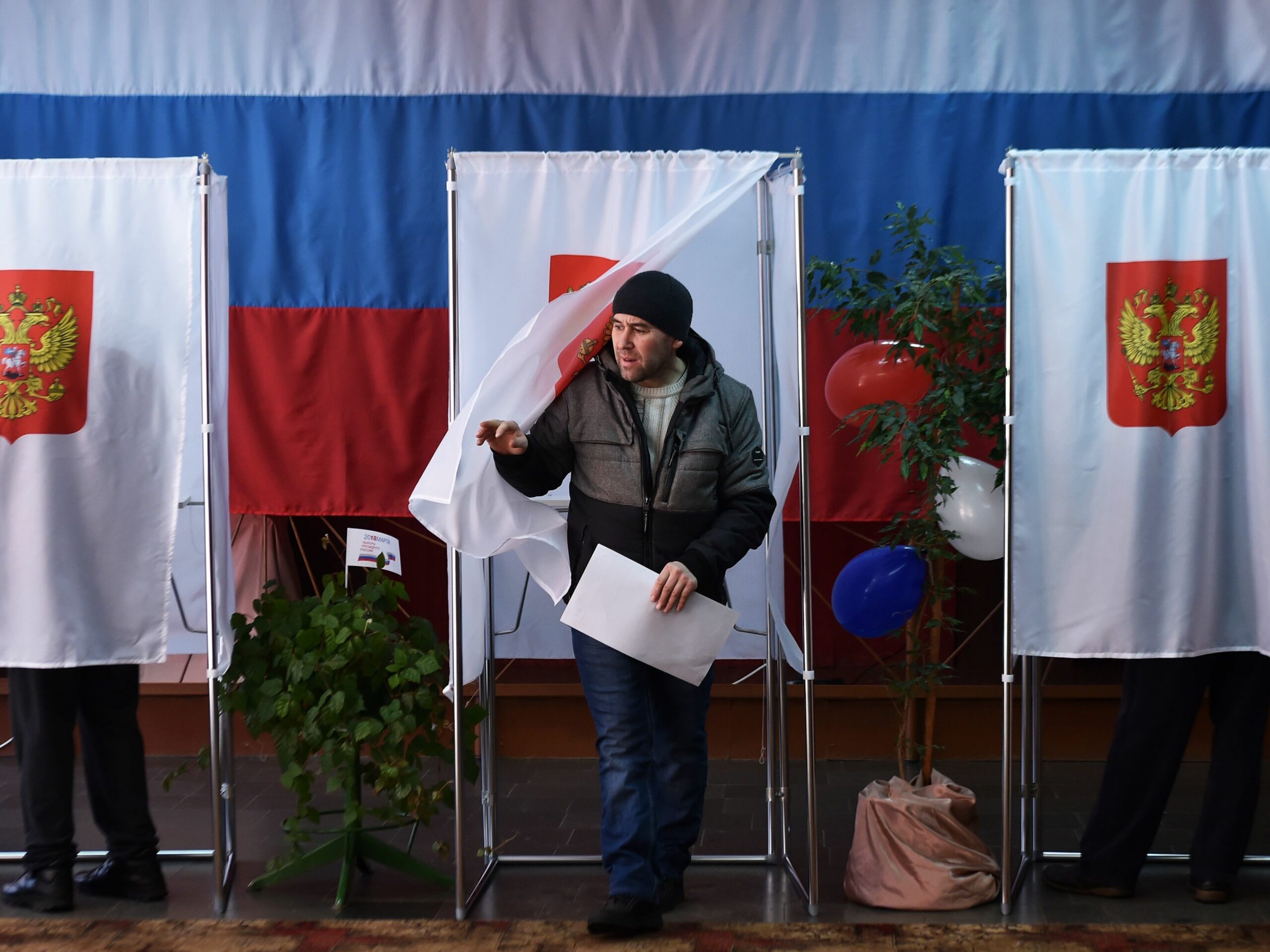
Legislative elections are currently being held in Russia between September 17-19, as 450 new members in the State Duma need to be elected.
The Central Election Commission (CEC) of the Russian Federation decided to open a record number of polling stations in the Transnistrian region – 27 polling stations, in addition to only 3 polling station opened on the right bank of the Dniester in such big cities as Chisinau, Comrat and Balti.
That is the largest number of polling stations opened by the Russian CEC in a foreign country, and five polling stations more than in the 2016 elections. Two of the polling stations were established in Tiraspol, being open from Friday to Sunday. The rest of the Russian polling stations on the Transnistrian territory are opened on Sunday only. The most astonishing fact is that no state other than Russia has ever opened polling stations in the separatist region of the Republic of Moldova. Actually, no polling stations are being opened on the Transnistrian territory when it comes to national elections of the Republic of Moldova either.
Therefore, one could say that the stakes are high when it comes to Transnistrian voters, especially since, most likely, the hopes of Russian authorities are not necessarily based on a large turnout and their real support, rather on the real possibility of electoral fraud on a territory that is not controlled by the constitutional authorities in Chisinau.
Before the presidential elections in 2018, Russian authorities announced that there are 220 thousand Russian citizens living in the Transnistrian region. That time, 24 polling stations were opened in the separatist area. Despite the fact that the Tiraspol Electoral Commission announced that, in the last year and a half alone, the voter turnout has officially fallen in the region by more than 7 700 people, the Russian CEC still decided to establish a record number of polling stations this year, which strengthened the argument about the possibility of election fraud.
Both Tiraspol’s administration and the regional media campaigned for the ruling political party United Russia and called for a high turnout at polling stations. Transnistria’s leader, Vadim Krasnoselski, urged the people on the left bank of the Dniester to come to the polls “because despite all the difficulties, Russia does not forget Transnistria and helps it as much as possible.”
It seems that the campaigning, along with the Russian sponsorship in the region, show great results during every election ballot, as Russian citizens voting in Russian elections in Transnistria are a more active electorate than Moldovan citizens residing in Transnistria and voting in the Moldovan elections at the polling stations arranged on the other bank of the Dniester, especially for them. In the previous Russia’s legislative elections, 56 thousand people voted in Transnistria, while just under 29 thousand inhabitants of the Transnistrian region voted in the recent Moldova’s parliamentary elections.
Before every election ballot held in the Russian Federation, Moldovan authorities make statements, suggesting the Russian side to abstain from opening polling stations in Transnistria, whereas Russian authorities ignore them every time.
This year, the Ministry of Foreign Affairs and European Integration of the Republic of Moldova also sent a note of protest against opening the polling stations in Transnistria. “The Ministry of Foreign Affairs and European Integration regrets that, despite the position consistently expressed by the Moldovan authorities, the Russian side acted in a manner that does not correspond to the principle of sovereignty and territorial integrity of the Republic of Moldova and the bilateral legal framework.”
The Ministry representatives noted that Russian authorities were informed of the lack of impediments to open polling stations in localities under the control of Moldova’s constitutional authorities and requested the Russian side to refrain from opening the 27 polling stations in the localities of the breakaway region, given the impossibility of ensuring the necessary security conditions for the current elections.
Moscow’s Central Election Commission also opened nine polling stations in Abkhazia and ten in South Ossetia – two disputed territories that were internationally recognised by Russia and a few more countries, while considered under military occupation, according to the Georgian Government. These lands, that are under the exclusive control of Russia, offer good opportunities to ‘correct’ any uncomfortable results obtained in the country, where the ruling political party no longer enjoys as much support as it wants to appear.
Photo: wjct.org

























